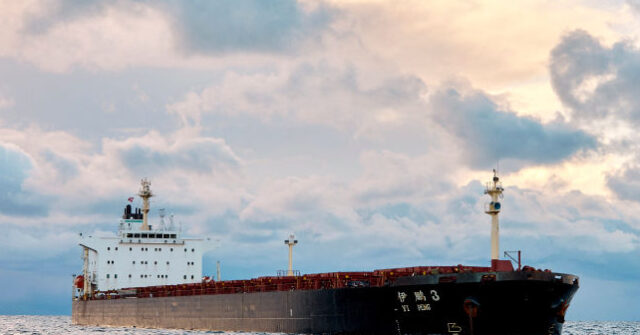On November 17 and 18, two telecommunications cables in Swedish territorial waters were severed, raising suspicions regarding the involvement of a Chinese vessel, the Yi Peng 3. Swedish Foreign Minister Maria Malmer Stenergard reported that China has denied a request from Swedish prosecutors to investigate the ship, despite China’s earlier assurances of cooperation with regional authorities. At the time of the cable cuts, tracking data indicated that the Yi Peng 3 had been in the vicinity, leading to heightened scrutiny. The incident has stirred controversy, especially amid current global tensions surrounding maritime security and foreign interventions in the Baltic Sea.
The Yi Peng 3 had reportedly been docked in the international waters of the Kattegat strait, which is situated between Sweden and Denmark. Following the cable incidents, the vessel departed the area, prompting Chinese foreign ministry spokesperson Mao Ning to state that the ship left to “ensure the physical and mental well-being” of its crew. According to China, the shipowner decided to resume operations after evaluating the situation and consulting relevant parties. The Chinese government maintained that they had informed all necessary countries in advance about the ship’s movements and affirmed their commitment to cooperating with Sweden and other nations involved in the investigation.
Despite these assertions from China, Swedish officials shared concerns about their inability to conduct a proper inquiry into the Yi Peng 3. While Swedish police have been able to participate as observers in an investigation led by China, they have not received permission to engage in their own criminal investigation. Swedish prosecutor Henrik Soderman confirmed that no investigative measures—such as crew questioning or technical inspections—were undertaken on board the vessel during the visit, amplifying frustrations regarding the lack of cooperation from China. Authorities from Sweden, Finland, and Germany were allowed aboard merely as observers, while Danish representatives facilitated earlier discussions among the involved nations.
The Swedish Accident Investigation Authority (SHK) was also included in the contingent that visited the Yi Peng 3. They were presented with some opportunities, like speaking to crew members, but their participation did not carry the same level of investigative authority as a formal criminal probe. John Ahlberk, the director of SHK, acknowledged that their mandate focuses on gathering observational data rather than carrying out investigations that would adhere to stricter legal standards. As of now, conclusions from the observations made by SHK have not been finalized.
Authorities in Sweden are adamant about their request for more proactive measures in cooperation with China. Foreign Minister Stenergard emphasized that they have consistently conveyed their need for Swedish prosecutors to be allowed to perform investigative actions on the Yi Peng 3. The Swedish government previously sought China’s collaboration in the inquiry, with Prime Minister Ulf Kristersson indicating that no specific accusations had been made against them. Nonetheless, European officials are increasingly suspicious about possible sabotage motives tied to geopolitical tensions, particularly in the wake of Russia’s invasion of Ukraine.
The tension surrounding the Baltic Sea has notably escalated since the start of the Russia-Ukraine conflict. The cutting of the Arelion cable, which connects Gotland to Lithuania, as well as the C-Lion 1 cable between Helsinki and Rostock, signals a precarious situation that raises alarms about regional security. Similar incidents have contributed to a growing narrative linking Russia to acts of malfeasance in the region, especially after the unexplained ruptures of the Nord Stream pipelines in September 2022. Recent events, including damage to a gas pipeline between Finland and Estonia by a Chinese cargo ship’s anchor, further complicate the relations and investigative challenges faced by Sweden and its allies in securing the Baltic Sea against potential sabotage or espionage activities.

